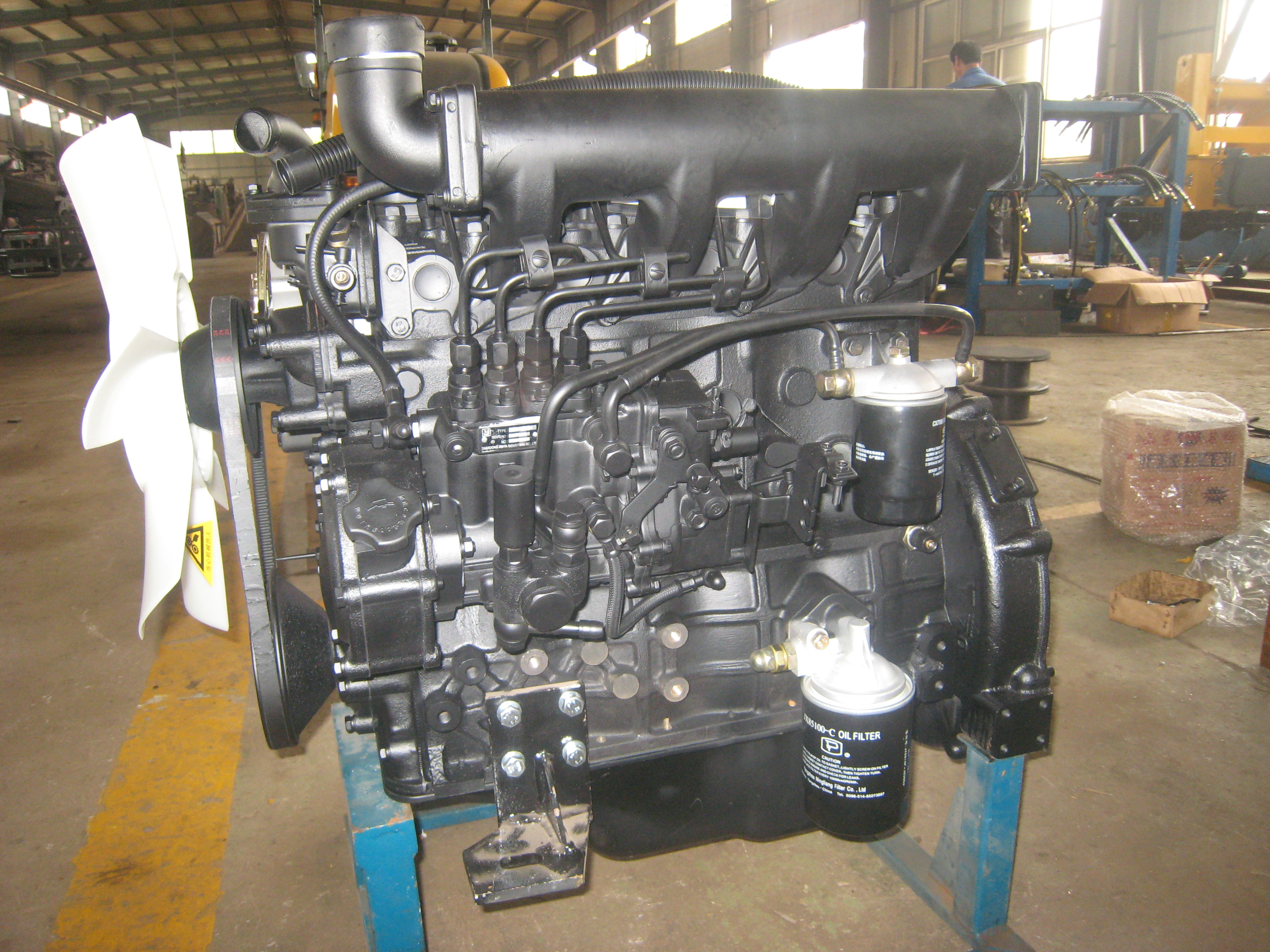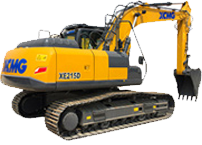Secret! -- Causes of engine exhaust
Publication Date: 2019-07-16
Fault analysis and diagnosis:

The lower exhaust gas (crankcase exhaust gas) of the diesel engine is one of the common faults of the diesel engine. There are many reasons for the excessive pressure of the diesel engine crankcase exhaust gas, mainly as follows:
(1) Severe wear of piston ring or cylinder liner: If the piston ring or cylinder liner is seriously worn, the sealing between the piston and the cylinder liner is not strict. During the compression and expansion of the diesel engine, a large amount of compressed gas will pass through the ring and the cylinder liner. The tiny gap between them enters the crankcase, which causes the crankcase exhaust pressure to increase.
Accompanying phenomenon: Exhaust gas under the respirator is serious, diesel engine power is insufficient, and blue smoke may also occur.
(2) Piston ring counterpart: Although the piston ring is not worn, if the opening of the ring is completely opposed, a large amount of high-pressure gas will be introduced into the crankcase during compression and expansion, resulting in an increase in the exhaust gas pressure of the crankcase.
Accompanying phenomenon: Diesel engine exhaust is severe, engine oil consumption increases, and exhaust gas may emit blue smoke.
(3) Piston ring sticking or breaking: The piston ring sticking, breaking or losing elasticity will cause the cylinder to be tightly sealed, and the combustion gas will squat into the crankcase, which will increase the pressure of the crankcase exhaust gas.
Accompanying phenomenon: the crankcase exhaust pressure is high, the diesel engine emits blue smoke, the power is insufficient, and there is abnormal noise in the cylinder.
(4) Ablation of the top of the piston or pulling the cylinder: The top of the piston is severely ablated or pulled, which will make the cylinder lose its seal, and the pressure of the crankcase exhaust gas will increase naturally.
Accompanying phenomenon: the diesel engine has abnormal noise, the exhaust smokes black smoke, the power is insufficient, or the diesel engine cannot rotate.
(5) Crankcase respirator failure:
1 Respirator film or (respirator) piston is damaged. Damage to the respirator film or (ventilator) piston will result in a loss of balance between the crankcase and the atmosphere, and an increase in internal and external pressure differentials, resulting in increased exhaust emissions from the crankcase.
Accompanying phenomenon: increased oil consumption, severe exhaust blue smoke, but basically no effect on power.
2 The small ventilator of the respirator and the atmosphere is blocked: the small venting of the respirator and the atmosphere is blocked, and the inside of the crankcase and the atmosphere cannot be balanced. Under the same pressure difference between the internal and external, the exhaust volume of the crankcase is increased. Big.
Accompanying phenomenon: increased oil consumption, severe exhaust blue smoke, but basically no effect on power.
(6) Too much oil in the engine: too much oil in the engine will increase the pressure of the crankcase exhaust gas. This is because the space inside the crankcase is limited, the oil is added too much, and the high-speed moving parts such as the crank connecting rod will seriously impact the oil. The splash and the oil mist cause the crankcase exhaust gas pressure to increase.
Accompanying phenomenon: the crankcase exhaust pressure is high and the oil level is too high.
(7) Severe suffocation in the air compressor: If the piston ring of the air compressor is seriously worn, it will cause the compressed air of the air compressor to have a lining into the crankcase and cause the pressure of the crankcase exhaust gas to increase. When checking the diesel piston ring, cylinder liner, respirator, etc. without problems and the crankcase exhaust pressure is still large, it is necessary to check the air compressor accordingly.
Accompanying phenomenon: the crankcase exhaust gas pressure increases, the oil consumption increases, the equipment pneumatic system builds down slowly and organic oil. At this time, the quality of the air compressor should be checked, the air circuit system of the equipment should be dredged, and the air compressor (piston ring, etc.) or the pneumatic safety valve should be replaced as appropriate.
(8) The main difference between the piston ring or cylinder liner factor and other factors that cause the crankcase exhaust pressure to be large:
1 The piston ring or cylinder liner wears, and the combustion gas is injected into the crankcase. Therefore, the crankcase exhaust gas has a strong burning gas taste, while other factors do not have such a taste.
2 piston ring or cylinder liner factor 窜 gas easy to make the oil black in a short time, other factors, the oil blackening time is normal.
3 piston ring or cylinder casing factor helium will cause insufficient diesel engine power, black smoke, abnormal noise in the cylinder, etc., while other factors, helium, do not have these phenomena.
(9) The hazard of the crankcase exhaust pressure:
1 increase the oil consumption;
2 diesel engine is seriously blue smoke;
3 easy to cause carbon deposit on the top of the piston or the piston ring groove, resulting in failure of the pull cylinder;
4 For closed-cycle crankcase breathing system (ie, direct introduction of the respirator exhaust pipe into the intake pipe of the diesel engine), it is easy to cause ablation failure at the top of the piston.
The charm of tomorrow is less than the charm of yesterday. For some reason, the past does not flash out the infinite monotony as in the future.

The lower exhaust gas (crankcase exhaust gas) of the diesel engine is one of the common faults of the diesel engine. There are many reasons for the excessive pressure of the diesel engine crankcase exhaust gas, mainly as follows:
(1) Severe wear of piston ring or cylinder liner: If the piston ring or cylinder liner is seriously worn, the sealing between the piston and the cylinder liner is not strict. During the compression and expansion of the diesel engine, a large amount of compressed gas will pass through the ring and the cylinder liner. The tiny gap between them enters the crankcase, which causes the crankcase exhaust pressure to increase.
Accompanying phenomenon: Exhaust gas under the respirator is serious, diesel engine power is insufficient, and blue smoke may also occur.
(2) Piston ring counterpart: Although the piston ring is not worn, if the opening of the ring is completely opposed, a large amount of high-pressure gas will be introduced into the crankcase during compression and expansion, resulting in an increase in the exhaust gas pressure of the crankcase.
Accompanying phenomenon: Diesel engine exhaust is severe, engine oil consumption increases, and exhaust gas may emit blue smoke.
(3) Piston ring sticking or breaking: The piston ring sticking, breaking or losing elasticity will cause the cylinder to be tightly sealed, and the combustion gas will squat into the crankcase, which will increase the pressure of the crankcase exhaust gas.
Accompanying phenomenon: the crankcase exhaust pressure is high, the diesel engine emits blue smoke, the power is insufficient, and there is abnormal noise in the cylinder.
(4) Ablation of the top of the piston or pulling the cylinder: The top of the piston is severely ablated or pulled, which will make the cylinder lose its seal, and the pressure of the crankcase exhaust gas will increase naturally.
Accompanying phenomenon: the diesel engine has abnormal noise, the exhaust smokes black smoke, the power is insufficient, or the diesel engine cannot rotate.
(5) Crankcase respirator failure:
1 Respirator film or (respirator) piston is damaged. Damage to the respirator film or (ventilator) piston will result in a loss of balance between the crankcase and the atmosphere, and an increase in internal and external pressure differentials, resulting in increased exhaust emissions from the crankcase.
Accompanying phenomenon: increased oil consumption, severe exhaust blue smoke, but basically no effect on power.
2 The small ventilator of the respirator and the atmosphere is blocked: the small venting of the respirator and the atmosphere is blocked, and the inside of the crankcase and the atmosphere cannot be balanced. Under the same pressure difference between the internal and external, the exhaust volume of the crankcase is increased. Big.
Accompanying phenomenon: increased oil consumption, severe exhaust blue smoke, but basically no effect on power.
(6) Too much oil in the engine: too much oil in the engine will increase the pressure of the crankcase exhaust gas. This is because the space inside the crankcase is limited, the oil is added too much, and the high-speed moving parts such as the crank connecting rod will seriously impact the oil. The splash and the oil mist cause the crankcase exhaust gas pressure to increase.
Accompanying phenomenon: the crankcase exhaust pressure is high and the oil level is too high.
(7) Severe suffocation in the air compressor: If the piston ring of the air compressor is seriously worn, it will cause the compressed air of the air compressor to have a lining into the crankcase and cause the pressure of the crankcase exhaust gas to increase. When checking the diesel piston ring, cylinder liner, respirator, etc. without problems and the crankcase exhaust pressure is still large, it is necessary to check the air compressor accordingly.
Accompanying phenomenon: the crankcase exhaust gas pressure increases, the oil consumption increases, the equipment pneumatic system builds down slowly and organic oil. At this time, the quality of the air compressor should be checked, the air circuit system of the equipment should be dredged, and the air compressor (piston ring, etc.) or the pneumatic safety valve should be replaced as appropriate.
(8) The main difference between the piston ring or cylinder liner factor and other factors that cause the crankcase exhaust pressure to be large:
1 The piston ring or cylinder liner wears, and the combustion gas is injected into the crankcase. Therefore, the crankcase exhaust gas has a strong burning gas taste, while other factors do not have such a taste.
2 piston ring or cylinder liner factor 窜 gas easy to make the oil black in a short time, other factors, the oil blackening time is normal.
3 piston ring or cylinder casing factor helium will cause insufficient diesel engine power, black smoke, abnormal noise in the cylinder, etc., while other factors, helium, do not have these phenomena.
(9) The hazard of the crankcase exhaust pressure:
1 increase the oil consumption;
2 diesel engine is seriously blue smoke;
3 easy to cause carbon deposit on the top of the piston or the piston ring groove, resulting in failure of the pull cylinder;
4 For closed-cycle crankcase breathing system (ie, direct introduction of the respirator exhaust pipe into the intake pipe of the diesel engine), it is easy to cause ablation failure at the top of the piston.
The charm of tomorrow is less than the charm of yesterday. For some reason, the past does not flash out the infinite monotony as in the future.


